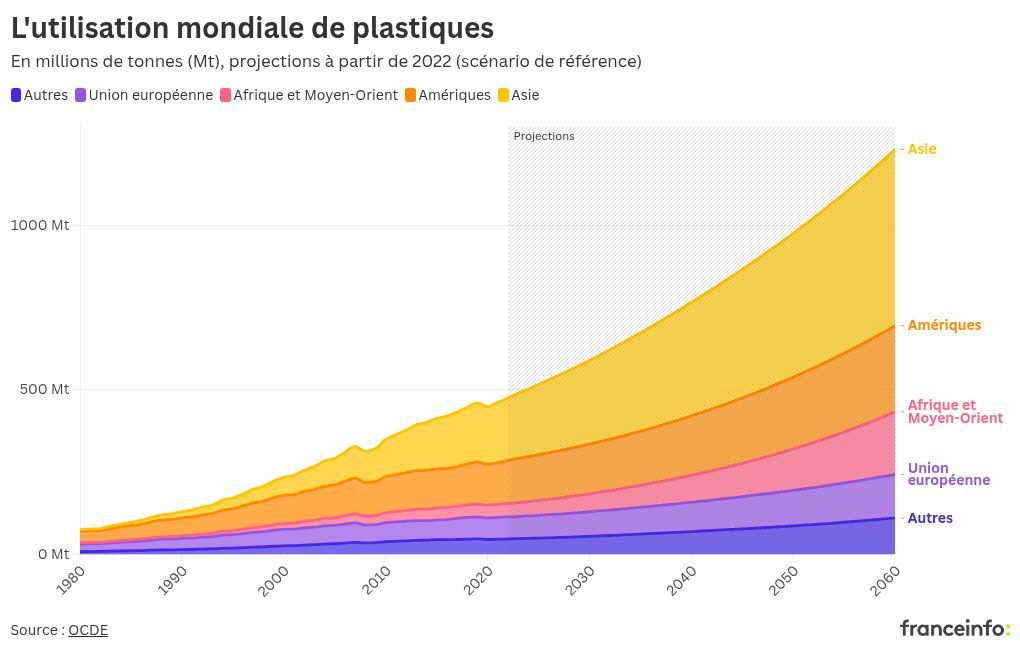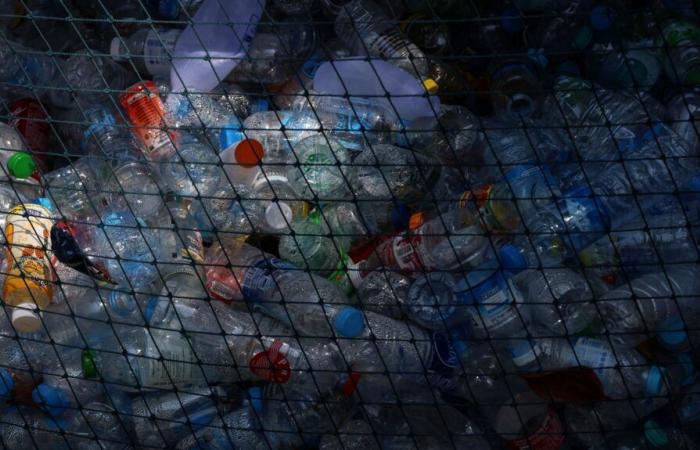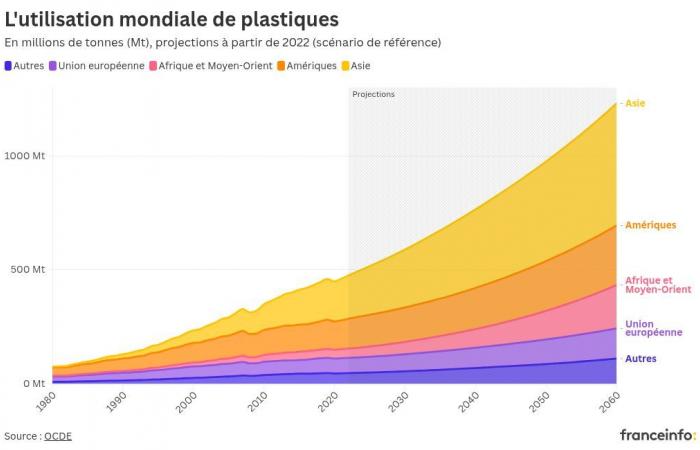Published on 03/12/2024 06:04
Reading time: 2min

The amount of plastic used worldwide is expected to almost triple between 2019 and 2060, according to OECD projections. A historic threat.
Always more plastic! While negotiations in Busan (South Korea) to find an agreement to combat this pollution failed on Sunday, December 1, the use of plastic should continue to grow. And not just a little. Without production limits or global management policies, plastic consumption is expected to almost triple in the world between 2019 and 2060, according to OECD projections.
The consequence is dramatic: “Plastics released into the environment constitute one of the most serious ecological threats of the 21st century”affirms the cooperation organization of so-called “developed” countries, including France.

From Asia to the Americas, Africa and Europe, all major regions of the world are expected to continue using more and more plastic, according to these projections. In total, 1,231 million tonnes (Mt) could thus submerge the planet in 2060, compared to 460 in 2019.
The growth rates are very different. The 38 OECD countries should therefore double their consumption over this period, while India should multiply it by 5.5 and sub-Saharan Africa by 6.5, according to these projections. Despite this rapid growth, so-called “developed” countries are still expected to remain the largest consumers of plastic in 2060 on average per capita.
Don't count on recycling to escape this massive pollution. According to the OECD, more than 90% of plastics are not recycled worldwide. It will therefore always take more oil to manufacture these new objects. Recycled plastics are expected to account for only 12% of the total share of plastic use in 2060.
Is this wave of plastic inevitable? No, according to the OECD. “Adopting comprehensive and rigorous measures in all countries could virtually end plastic waste by 2040”ensures the organization. Concretely, this involves limiting production and demand, designing plastic objects with circularity in mind, increasing recycling and closing the paths of plastic release into the environment.
Measures which will, once again, be on the menu of the new negotiations for a global treaty against plastic pollution. Because if the discussions failed in Busan – notably due to opposition from oil-producing countries such as Russia, Saudi Arabia and Iran – they must resume in 2025. “The sooner the better”, said the head of the UN Environmental Program, Inger Andersen. “Because we have a huge problem.”
France
World









